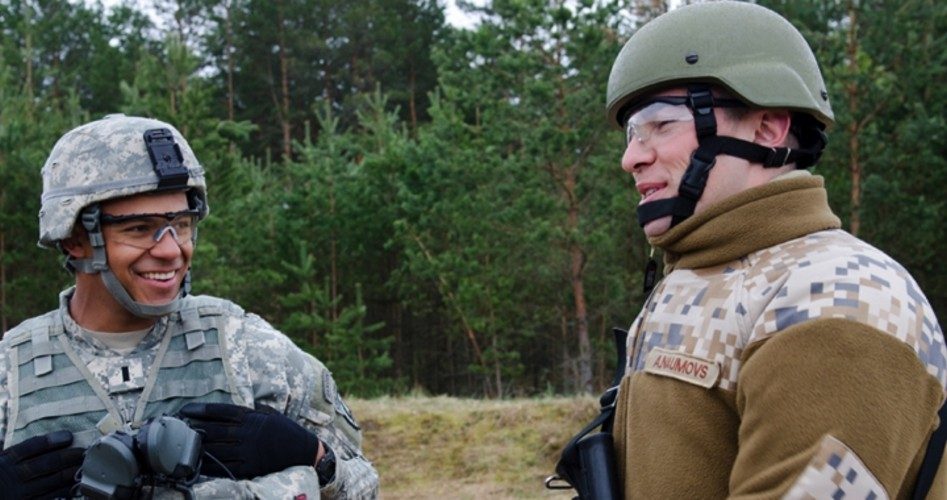
The United States will continue to lead the world without stumbling into military misadventures, President Obama said in a commencement address at West Point Wednesday, where he made no mention of plans to provide military training to the rebels in Syria’s three-year-old civil war.
“America must always lead on the world stage,” the president told the graduating class at the U.S. Military Academy. “The landscape has changed,” he continued. “But U.S. military action cannot be the only — or even primary — component of our leadership in every instance. Just because we have the best hammer does not mean that every problem is a nail.” One day after announcing all American troops would be out of Afghanistan by 2016, Obama said the end of the Iraq and Afghanistan wars signaled a change in direction for the nation’s foreign policy.
In crises that do not directly threaten the United States, diplomacy, sanctions, and “collective action” with other nations are alternatives to direct military intervention, he said. He cited the civil war in Syria, where the fighting has killed more than 230,000, as a situation in which allies could work together to bring down Syrian President Bashar al-Assad. He pledged to work with Congress to “ramp up support” for certain elements in the Syrian opposition who “offer the best alternative to terrorists and a brutal dictator.” He did not, however, mention plans that administration officials said are under consideration at the White House to send a limited number of U.S. troops to Jordan to equip and train members of the Syrian Free Army.
Also on Wednesday, Secretary of State John Kerry said the United States is setting up a $5-billion “terrorism partnership fund” to help other countries defend against radical extremists.
The United States has already been sending small arms to the Syrian rebels and has been providing covert assistance through the CIA. The plan now under consideration would involve the use of U.S. special-operations forces, though it’s not clear when or where in Jordan the training would start. The plan would require U.S. military officials work out a system for vetting rebels for the program.
Much of the fighting against the Syrian government is being waged by anti-Western extremists, primarily the al-Qaeda affiliate Nusra Front, which fought U.S. troops in Iraq. U.S. personnel in Afghanistan temporarily suspended training of recruits to Afghan security forces after American soldiers had been attacked and killed by the locals they were training.
The American experience in Libya offers another cautionary tale as U.S. and NATO assistance to the rebels who overthrew Moammar Gadhafi backfired when extremists in Benghazi turned their weapons and wrath on Americans, killing the U.S. ambassador and three other U.S. citizens. Libyan jihadists, having rained chaos on their own country, have spread throughout the Middle East, joining the fighting in Syria and elsewhere.
President Obama announced last September that he was invoking his authority to waive provisions of the Arms Export Control Act in order to send weapons to vetted rebels. The act prohibits sending weapons into countries that have “repeatedly provided support for acts of international terrorism.” Syria has long been on the State Department’s list of state supporters of terrorism.
Kerry spent much of his time on Wednesday’s morning talks shows defending the administration’s commitment to bring U.S. combat units troops home from Afghanistan by the end of this year and the remaining training and advisory personnel by 2016.
“This is not an abandonment of Afghanistan,” Kerry said on NBC’s Today show. “This is an emboldenment. This is an empowerment of Afghanistan.” On the CBS This Morning show, Kerry said that withdrawing from Afghanistan will leave the United States more resources to employ elsewhere in a “rapidly changing, more complex world where terrorism is the principal challenge.”
Future events may yet determine whether U.S. weapons and influence around the world will finally put a lid on terrorism or build the flames beneath it.


